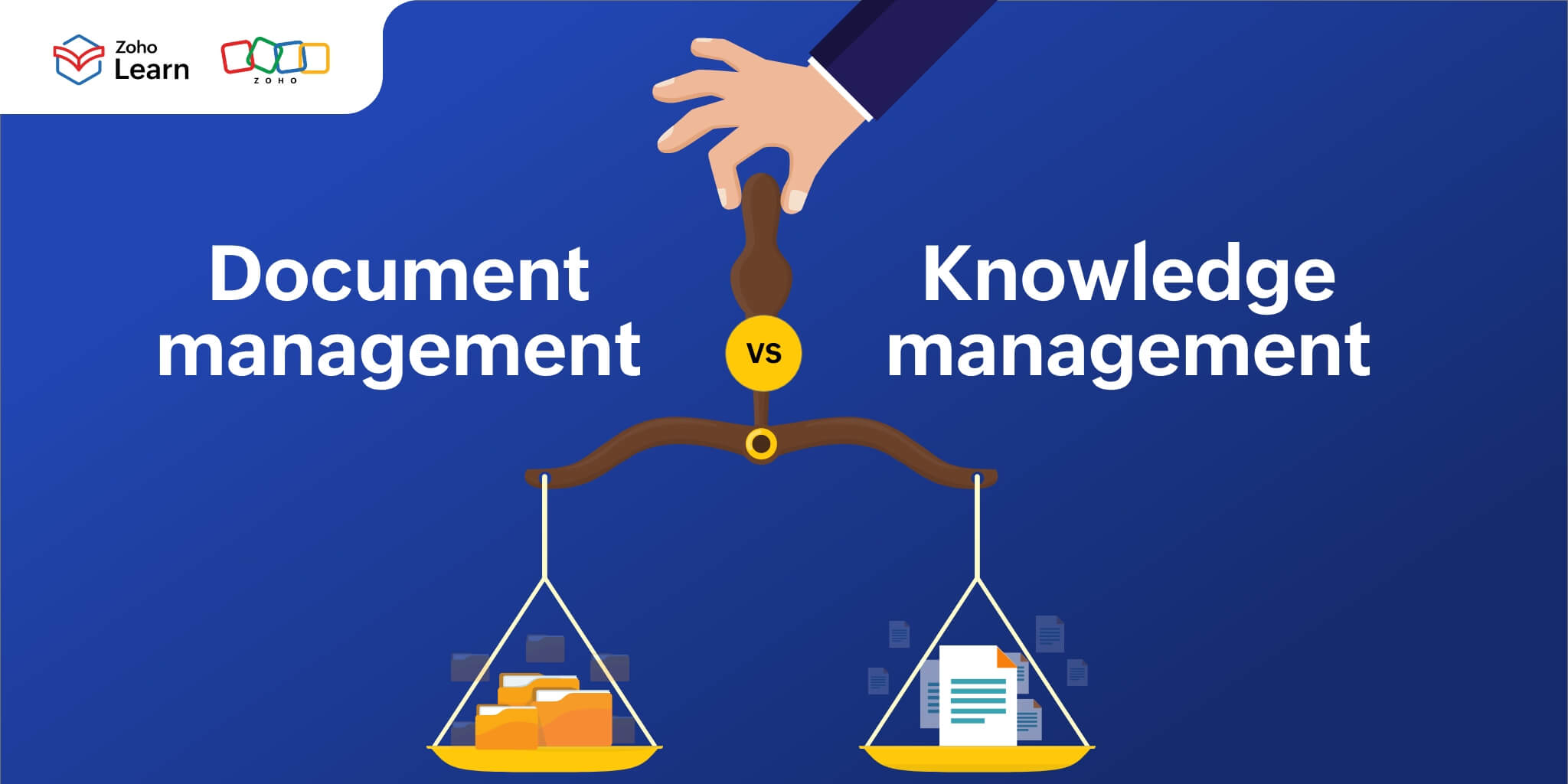- HOME
- Knowledge Management
- Types of knowledge in an organization
Types of knowledge in an organization
- Last Updated : October 11, 2023
- 10.4K Views
- 2 Min Read

Knowledge is an important aspect of any organization's growth. It helps employees make informed decisions and perform their day-to-day activities efficiently. An organization's knowledge base is built from the contributions of many individuals, and this collective knowledge becomes the foundation to achieve the organization's strategic goals.
What is organizational knowledge?
Organizational knowledge can be defined as the knowledge built from the collective or individual experiences of the people in the organization. It is a collection of knowledge resources that are shared, consumed, and applied to support the functioning of the organization. Organizational knowledge exists in different forms and can be categorized into three major types:
Explicit knowledge
Explicit knowledge is generally referred to as the "know-what" knowledge, and it is the most common form of knowledge that exists in an organization. It is the type of knowledge that can easily be articulated, organized, and documented. Since explicit knowledge can be stored, the challenge lies in providing access to the people who need it. Organizations must create a process that is flexible as well as secure to transmit this knowledge to their employees. It is also necessary to constantly review, update, and discard any information that may be outdated.
Examples of explicit knowledge include company policies, technical documents, process sheets, research papers, FAQs, user guides, etc.
Implicit knowledge
Implicit knowledge, also called embedded or "know-how" knowledge, can be defined as the knowledge gained from the application of explicit knowledge to a situation. It is acquired through experience in specific situations, generally without the learner's awareness of their gaining knowledge. You can learn the steps to perform a task and synthesize the information to find the best possible way to complete the job at hand. These skills can be difficult to document but can be transferred from one person to another in an organization.
For example, you can learn the process of a sales pitch from a manual and synthesize the knowledge gained to make custom sales pitches for different prospects.
Tacit knowledge
Tacit knowledge is the type of knowledge and ability gained through years of experience on a job. It is difficult to document or verbally transfer to another person as it includes personal wisdom or intuition. Tacit knowledge in an organization is often excluded during the knowledge transfer process, as people are unaware of how it can be valuable to others. An effective transfer of tacit knowledge can happen only through regular interactions with experienced employees and also by observing how they perform their tasks.
For example, calmly interacting with different types of customers is a skill that a customer support executive develops through work experience.
While creating a knowledge management strategy, it is important to adopt a process that helps your employees record and utilize the different types of knowledge that exist in your organization. This increases knowledge retention and creates long-term value for your organization's knowledge.


